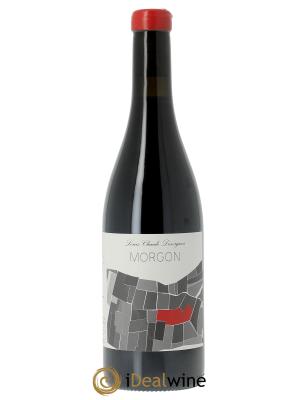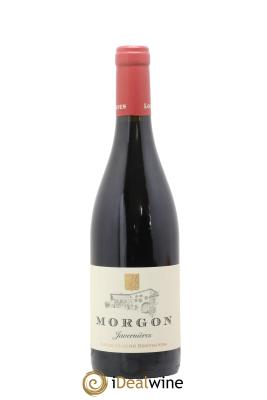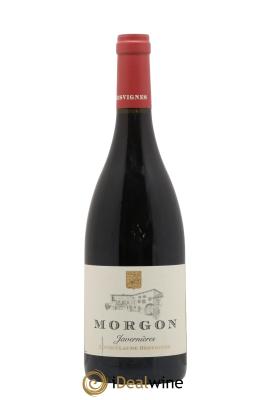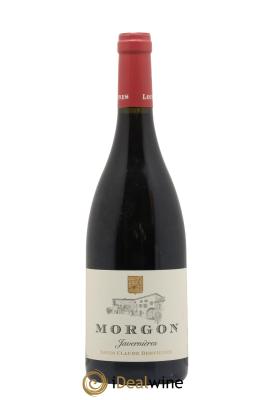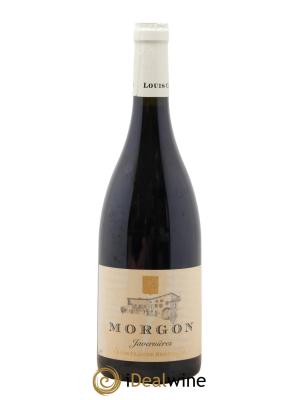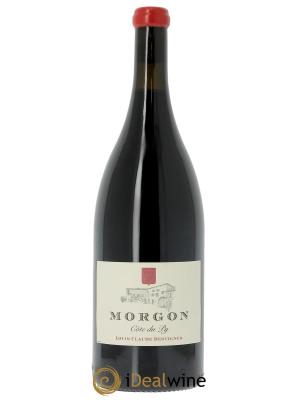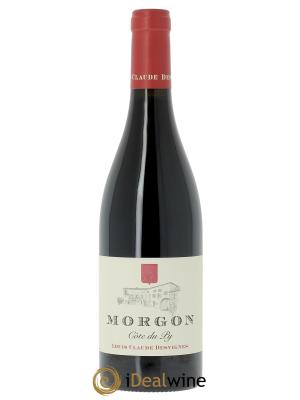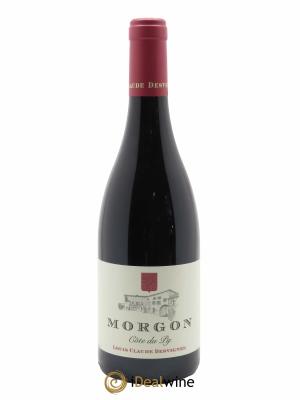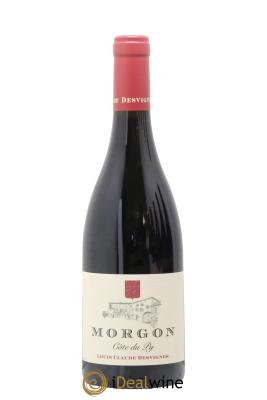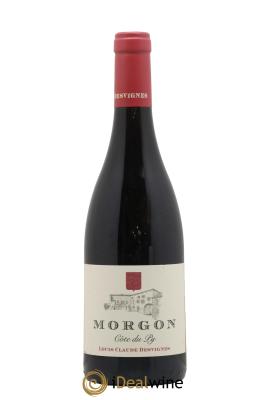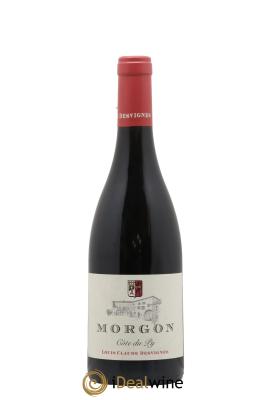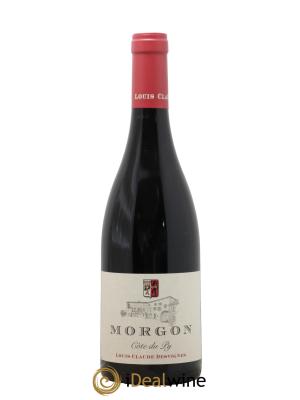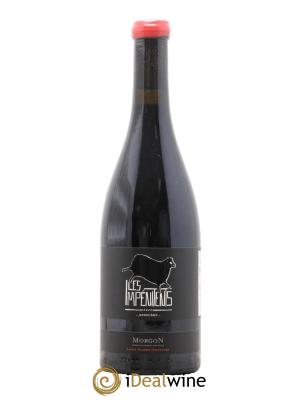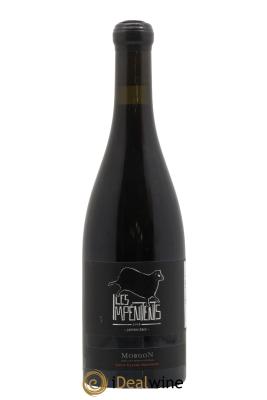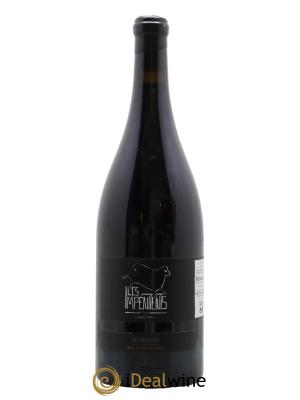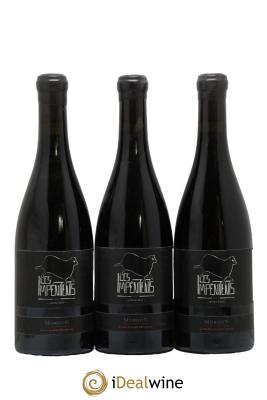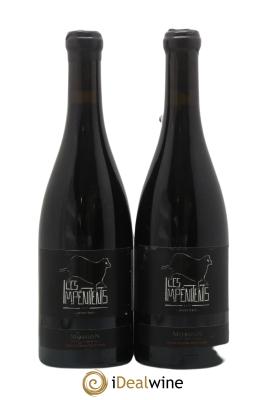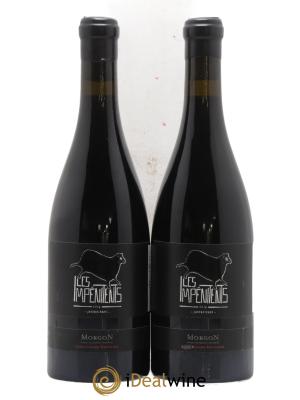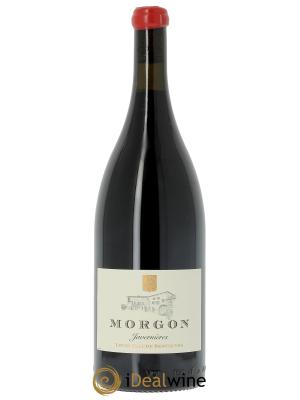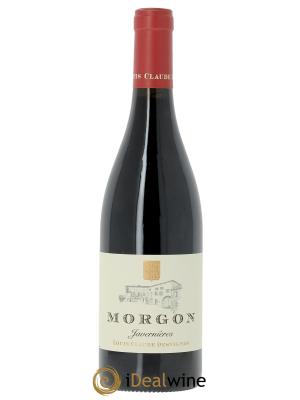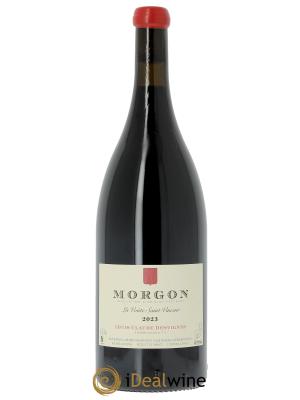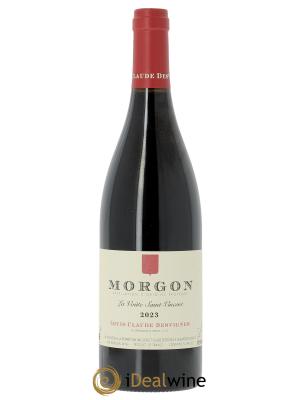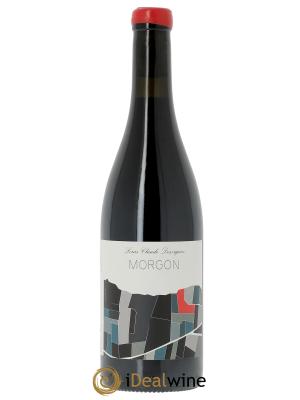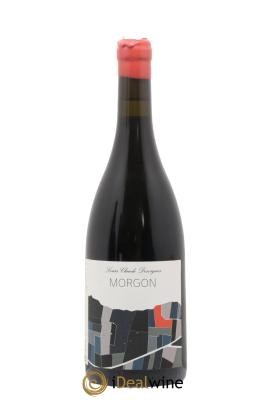Wine for sale: Louis-Claude Desvignes




Louis-Claude Desvignes
Unmissable! This is one of the most respected domains in the Beaujolais, listed in the TOP10 producers of the year by Bettane&Dessauve (2018). A historic family estate in Morgon (since 1712), the wines of domain Louis Claude Desvignes (in organic conversion) will win you over with their personality and great aging potential. An essential signature in Morgon!
Domaine Louis-Claude Desvignes is located in Villié-Morgon and has been managed by Claude-Emmanuelle Desvignes and his brother Louis-Benoît, who represent the 8th generation of the family, since 2002. The vineyard is 14 hectares with vines around 60 years old both in Douby and the Côte de Py. Each plot is vinified separately so that they better embody their individual terroir. Since 2023, Louis-Claude Desvigne has been certified organic. They also undergo a long maturation process. This domain produces beautiful examples of Morgon terroirs and undoubtedly holds a place amongst the best domains in Beaujolais.
- Morgon Montpelain Louis-Claude Desvignes 2022€19
- Morgon La Voûte Saint Vincent Louis-Claude Desvignes 2022€16
- Morgon Côte de Py Javernières Louis-Claude Desvignes 2022€28
- Morgon Côte du Py Louis-Claude Desvignes 2022€24
- Morgon Javernières Les Impénitents Louis-Claude Desvignes 2022€61
- Morgon Château Gaillard Louis-Claude Desvignes 2022€17
- Morgon Javernières Aux Pierres Louis-Claude Desvignes 2022€25
- Morgon La Voûte Saint Vincent Louis-Claude Desvignes 2021€19
- Morgon Corcelette Louis-Claude Desvignes 2021€24
- Morgon Javernières Aux Pierres Louis-Claude Desvignes 2021€38
- Morgon Côte de Py Javernières Louis-Claude Desvignes 2021€26
- Morgon Côte du Py Louis-Claude Desvignes 2021€26
- Morgon Javernières Louis-Claude Desvignes 2021€39
- Beaujolais Louis-Claude Desvignes 2021€12
- Morgon Côte du Py Louis-Claude Desvignes 2020€31
- Morgon Javernières Les Impénitents Louis-Claude Desvignes 2020€58
- Morgon La Voûte Saint Vincent Louis-Claude Desvignes 2020€17
- Morgon Côte de Py Javernières Louis-Claude Desvignes 2020€29
- Morgon Montpelain Louis-Claude Desvignes 2020€20
- Beaujolais-Villages L'aube à Javenières Louis-Claude Desvignes 2020€12
- Morgon Château Gaillard Louis-Claude Desvignes 2020€20
- Morgon Javernières Louis-Claude Desvignes 2020€33
- Morgon Javernières Aux Pierres Louis-Claude Desvignes 2020€33
- Morgon Côte de Py Javernières Louis-Claude Desvignes 2019€25
- Morgon Côte du Py Louis-Claude Desvignes 2019€29
- Morgon Javernières Les Impénitents Louis-Claude Desvignes 2019€69
- Morgon Corcelette Louis-Claude Desvignes 2019€24
- Morgon Montpelain Louis-Claude Desvignes 2019€30
- Morgon Côte de Py Javernières Louis-Claude Desvignes 2018€36
- Morgon Côte du Py Louis-Claude Desvignes 2018€27
- Morgon Javernières Les Impénitents Louis-Claude Desvignes 2018€63
- Morgon La Voûte Saint Vincent Louis-Claude Desvignes 2018€20
- Morgon Montpelain Louis-Claude Desvignes 2018€22
- Morgon Corcelette Louis-Claude Desvignes 2018€25
- Morgon Javernières Louis-Claude Desvignes 2018€26
- Morgon Côte du Py Louis-Claude Desvignes 2017€27
- Morgon Javernières Les Impénitents Louis-Claude Desvignes 2017€63
- Morgon Javernières Louis-Claude Desvignes 2017€25
- Morgon La Voûte Saint Vincent Louis-Claude Desvignes 2017€17
- Morgon Côte de Py Javernières Louis-Claude Desvignes 2017€24
- Morgon Corcelette Louis-Claude Desvignes 2017€18
- Morgon Montpelain Louis-Claude Desvignes 2017€23
- Morgon Côte de Py Javernières Louis-Claude Desvignes 2016€25
- Morgon Côte du Py Louis-Claude Desvignes 2016€25
- Morgon Javernières Les Impénitents Louis-Claude Desvignes 2016€73
- Morgon Javernières Louis-Claude Desvignes 2016€34
- Morgon La Voûte Saint Vincent Louis-Claude Desvignes 2016€18
- Morgon La Voûte Saint Vincent Louis-Claude Desvignes 2015€23
- Morgon Côte de Py Javernières Louis-Claude Desvignes 2015€25
- Morgon Côte du Py Louis-Claude Desvignes 2015€27
- Morgon Javernières Les Impénitents Louis-Claude Desvignes 2015€73
- Morgon Javernières Les Impénitents Louis-Claude Desvignes 2014€55
- Morgon La Voûte Saint Vincent Louis-Claude Desvignes 2014€14
- Morgon Côte de Py Javernières Louis-Claude Desvignes 2014€24
- Morgon Côte du Py Louis-Claude Desvignes 2014€22
- Morgon Javernières Louis-Claude Desvignes 2014€19
- Morgon Javernières Les Impénitents Louis-Claude Desvignes 2013€51
- Morgon La Voûte Saint Vincent Louis-Claude Desvignes 2013€18
- Morgon Côte du Py Louis-Claude Desvignes 2013€27
- Morgon Côte de Py Javernières Louis-Claude Desvignes 2013€29
- Morgon Côte de Py Javernières Louis-Claude Desvignes 2012€21
- Morgon Javernières Les Impénitents Louis-Claude Desvignes 2011€59
- Morgon La Voûte Saint Vincent Louis-Claude Desvignes 2011€28
- Morgon Côte de Py Javernières Louis-Claude Desvignes 2011€40
- Morgon Côte du Py Louis-Claude Desvignes 2011€35
- Morgon Javernières Louis-Claude Desvignes 2011€32
- Morgon Javernières Les Impénitents Louis-Claude Desvignes 2010€65
- Morgon La Voûte Saint Vincent Louis-Claude Desvignes 2010€31
- Morgon Côte de Py Javernières Louis-Claude Desvignes 2010€36
- Morgon Côte du Py Louis-Claude Desvignes 2010€40
- Morgon Javernières Les Impénitents Louis-Claude Desvignes 2009€75
- Morgon La Voûte Saint Vincent Louis-Claude Desvignes 2009€37
- Morgon Côte de Py Javernières Louis-Claude Desvignes 2009€26
- Morgon Côte du Py Louis-Claude Desvignes 2009€30
- Morgon Javernières Louis-Claude Desvignes 2009€29
- Morgon Côte de Py Javernières Louis-Claude Desvignes 2007€42
- Morgon Côte de Py Javernières Louis-Claude Desvignes 2006€27
- Morgon Côte du Py Louis-Claude Desvignes 2006€26
- Morgon Côte de Py Javernières Louis-Claude Desvignes 2005€48
- Morgon Côte du Py Louis-Claude Desvignes 2005€58
- Morgon Javernières Louis-Claude Desvignes 2005€39
- Morgon Côte du Py Louis-Claude Desvignes 2003€38
- Morgon Côte de Py Javernières Louis-Claude Desvignes 2002€18
- Morgon Côte du Py Louis-Claude Desvignes 2002€26
- Morgon Château Gaillard Louis-Claude Desvignes 1986€42
WHAT THE EXPERTS SAY...
BETTANE & DESSEAUVE
“Louis-Benoît et Claude-Emmanuelle Desvignes are worthy heirs to the eponymous domain. Their young age contrasts sharply with their extensive experience as winemakers, and the recent vintages serve only to confirm the great maturity of style realized by this mighty partnership. […] The result is unequivocal and unanimous: the Desvignes are making exceptional wine and have established themselves as the flagship domain of the Beaujolais.
LA REVUE DU VIN DE FRANCE
“The style of the wines has proven to be uncompromising: their identity and sophistication wholly showcasing the cru’s various terroirs. The soil is tilled. Each parcel is vinified separately, and the sorting of grapes is very strict. Given their traditional vinification and long élevage over the course of two winters, these wines will need time to slowly evolve in the bottle.”
